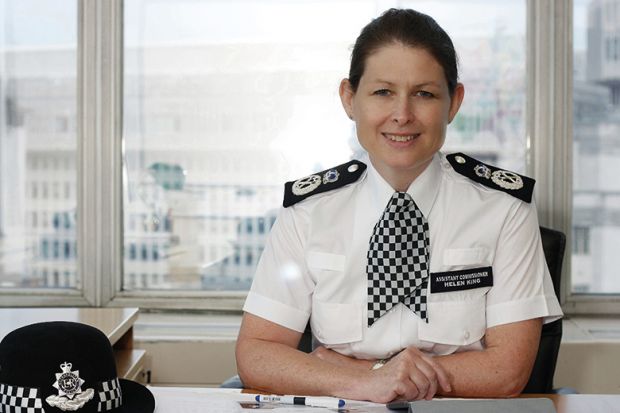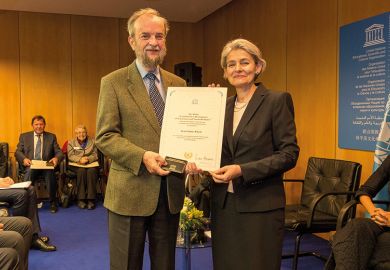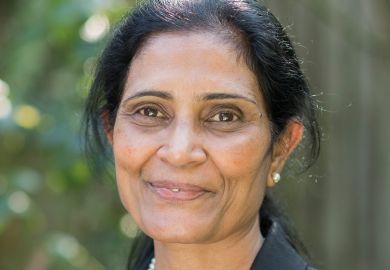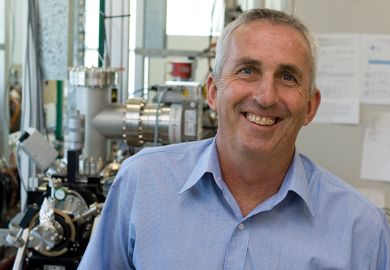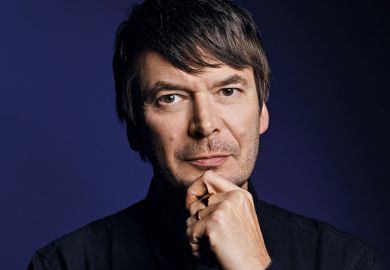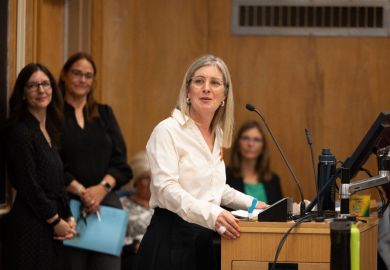Helen King is to become the first police officer to lead an Oxbridge college, following the announcement of her appointment as principal of St Anne’s College, Oxford, the same college where she studied as an undergraduate. She has worked for Cheshire Constabulary, Merseyside Police and the Metropolitan Police, which she joined as assistant commissioner for territorial policing before becoming assistant commissioner for professionalism this April. She will begin her new role in April 2017.
Where and when were you born?
In Bishop’s Stortford, Hertfordshire, in 1965.
How has this shaped you?
It was my parents’ values as much as my place of birth that shaped me. The five of us were brought up to be intellectually curious, knowing that it was wrong to judge or stereotype people on their appearance or background and that we should use our opportunities to help others.
Presiding over an Oxford college is quite a jump from policing. What drew you to the position?
St Anne’s is a particular Oxford college, originally established to enable women from less affluent backgrounds to access an Oxford education. It still has strong values of inclusion and outreach. They’re all things I care about and I know the huge difference that three or four years at Oxford can make to a young person’s life. I feel hugely privileged that after an immensely satisfying 30 years in policing, I can retire and take on a completely different challenge.
St Anne’s is your alma mater. Do you anticipate that it will have changed considerably since your time there?
The site itself has changed massively; I struggle to find my way around as there are so many new buildings. However, the soul of the college feels the same and even some of the same fellows are still around!
What do you envisage will be your most important role as principal?
I hope I will be an effective ambassador for the college and the university, particularly in challenging some of the myths and stereotypes that are associated with it. It is really important to me that we become more effective in persuading able and hard-working young people from families and schools that don’t have a strong university or Oxbridge tradition that Oxford is the university for them.
What was it like being a PC with an Oxford degree?
I was atypical in a number of ways when I joined and the degree was part of that. I think my colleagues got over their preconceptions when I made it very clear that I knew I had a lot to learn from them and didn’t think a PPE degree qualified me for any privileges.
Do you think that police officers should have a degree?
I think competent officers deserve a degree, which is slightly different. Decision-making at all levels of policing is complex, requiring knowledge and application of legislation, problem-solving and interpersonal skills. Policing also has a developing evidence base, derived from a range of academic disciplines including forensic psychology and criminology. Unfortunately, some people seem to believe that you can’t have an education and common sense. I think our police officers are best off with both. That’s not to say it should become an exclusively graduate-entry profession.
The US has recently experienced a huge backlash against police brutality and Britain has had its fair share of similar criticism. How do our police forces compare globally on this issue?
I would never be complacent about changes the police in Britain can and should make. However, British policing philosophy is completely different from America’s. In one 12-month period, police officers carrying firearms were deployed to nearly 12,500 incidents in England and Wales and discharged their weapons on only seven occasions, three of these resulting in a fatality. The police in the US don’t have a record of how many times they shoot someone, but in the first seven months of this year one project found that they had killed over 600 people. We should be proud that British policing is based in communities and we are one of only four countries in the world to have predominantly unarmed officers.
What has changed most in higher education over the past 10 years?
It seems to me that young people take their education and their futures more seriously than my generation did. I may be mis-remembering, but I don’t recall any of us worrying about our CVs or believing life would be over if we got a 2:2.
Have you ever had a eureka moment?
I've learned to distrust eureka moments. When I am really sure about something, I know I need to share my thinking with those who are willing to challenge me. It’s a risk in hierarchical organisations that no one may be prepared to tell you when you’ve got it wrong. I suspect academics won’t have that issue!
What was your most memorable moment at university?
There are so many, but it would probably be [Oxford’s] Summer Eights “bumps” rowing races over four days: the nerves, the starting gun, the physical effort, the triumph or disaster, the camaraderie and, on the last day, ending up in the river and drinking pints of Pimm’s.
What advice would you give to your college students?
I would encourage them to think widely about what they want to achieve after graduation. Envisaging what I might feel proud of in 30 or 40 years’ time was a helpful exercise for me when I was a finalist. I believe all of us would benefit if more of the country’s most able young people went into public sector roles and I think they would gain remarkable skills and job satisfaction as well.
Appointments
Liqun Chen has joined the University of Surrey as professor in secure systems. She has spent nearly 19 years at Hewlett Packard, where she was principal research scientist in the Security and Manage-ability Laboratory. During her career, Professor Chen has been heavily involved in the development of cryptographic techniques widely used on the internet today. In her new role, she will develop cyber-security research, teach, and lead interdisciplinary collaborations, such as with Surrey’s Faculty of Health and Medical Sciences to drive research in eHealth and other areas. “I aim to build Surrey’s reputation for cryptography and secure systems research further by developing algorithms that are used in the real world and become incorporated in standards,” Professor Chen said.
Alan Houston is to become pro vice-chancellor (education) at Durham University. He is currently professor of political science at the University of California, San Diego, where he is also director for academic strategic initiatives and where he has served as interim vice-chancellor for student affairs. At Durham, he will focus on developing and implementing new programmes and integrating technology with learning, assessment and feedback. “Durham is a creative, vibrant and forward-thinking university,” Professor Houston said. “I look forward to playing a part in Durham’s future.” He will take up his new post in January 2017.
Eunice Simmons has been named Nottingham Trent University’s first deputy vice-chancellor. She will also continue in her role as senior pro vice-chancellor (academic).
Cynan Jones is to take up the position of Aberystwyth University’s Royal Literary Fund writing fellow. He won the Wales Book of the Year Fiction Prize in 2015 for his novel The Dig.
Sara Matthews has been announced as the new dean of the Faculty of Dance at Trinity Laban Conservatoire of Music and Dance. She was previously director of the Central School of Ballet.
POSTSCRIPT:
Print headline: HE & me
Register to continue
Why register?
- Registration is free and only takes a moment
- Once registered, you can read 3 articles a month
- Sign up for our newsletter
Subscribe
Or subscribe for unlimited access to:
- Unlimited access to news, views, insights & reviews
- Digital editions
- Digital access to THE’s university and college rankings analysis
Already registered or a current subscriber?
